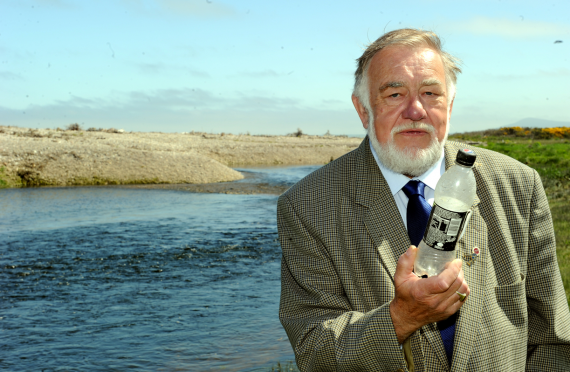A new study is being launched to determine whether microplastics in the water are affecting fish stocks in the Moray Firth and River Spey.
The James A Mackie Trust is funding lab tests to determine whether sealife in the region has been contaminated.
Instead of visible litter being washed up, microplastic involves traces of body lotion and medication which ends up in rivers and seas.
Trust chairman Jim Mackie has teamed up with a creel fisherman from Buckie to examine specimens and wants anglers on the River Spey to preserve catches, so they can also be tested.
He said: “As part of the project, we want to determine whether there is any correlation between microplastics and declining fish stocks.
“It seems to be a small issue in the wider scheme of things, but one with wider ramifications for the marine environment.
“If fish digest them [microplastics], it can slow their growth rate and have an impact on fertility. We want to take academic work into the real world to look at the bottom-feeders like codling, flatties, sea urchins and octopuses.”
The trust was awarded £3,000 from the Money for Moray scheme last month to pay for about 150 fish samples to be examined at Aberdeen University.
Tests could also be done on whales and sea birds, which were found dead in the Moray Firth, to determine if they have also been contaminated.
Microplastics have already been banned from care products in the USA to protect waterways.
Mr Mackie added: “It gradually works its way up the food chain. The best way to get rid of it is to stop using body products and cosmetics and go back to basic soaps.
“Medication shouldn’t be flushed down the toilet, it should be returned to a chemist.”
Evidence is due to be heard at a House of Commons committee tomorrow about the environmental impact of microplastics.
A report produced ahead of the meeting stated: “Laboratory evidence suggests that microplastics and their associated additives can be harmful to wildlife.
“However, not all species or life stages may be affected.”
